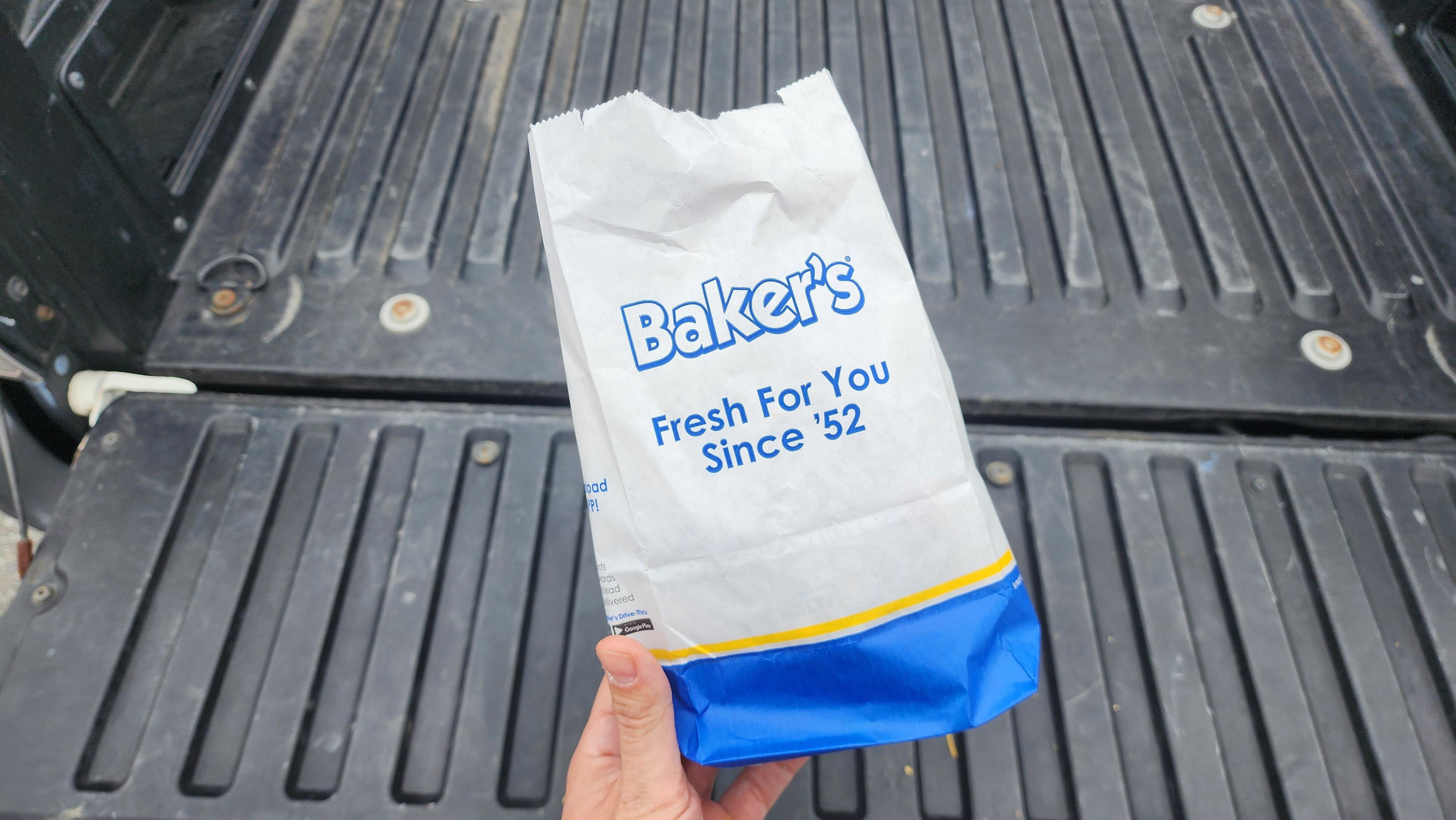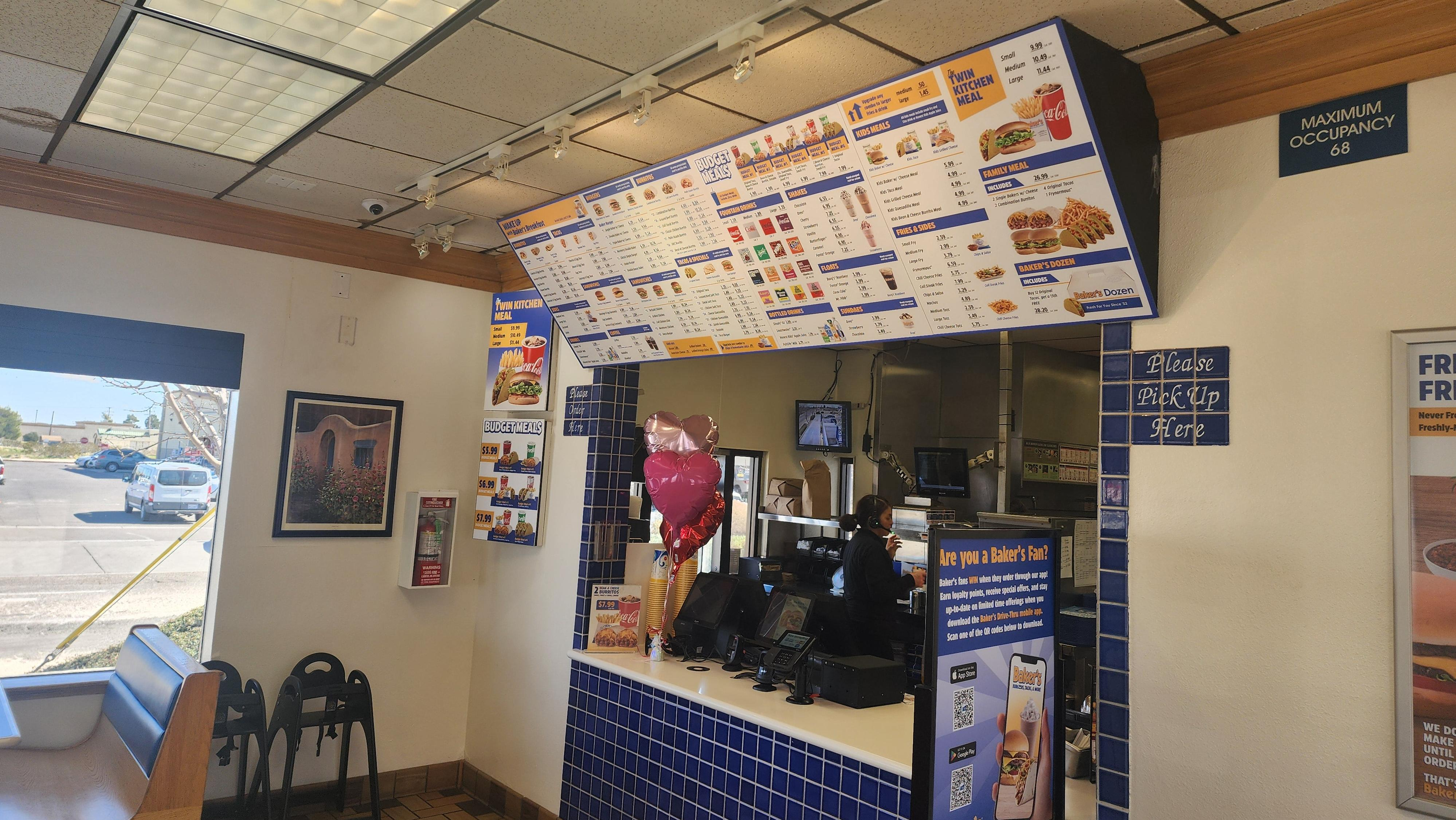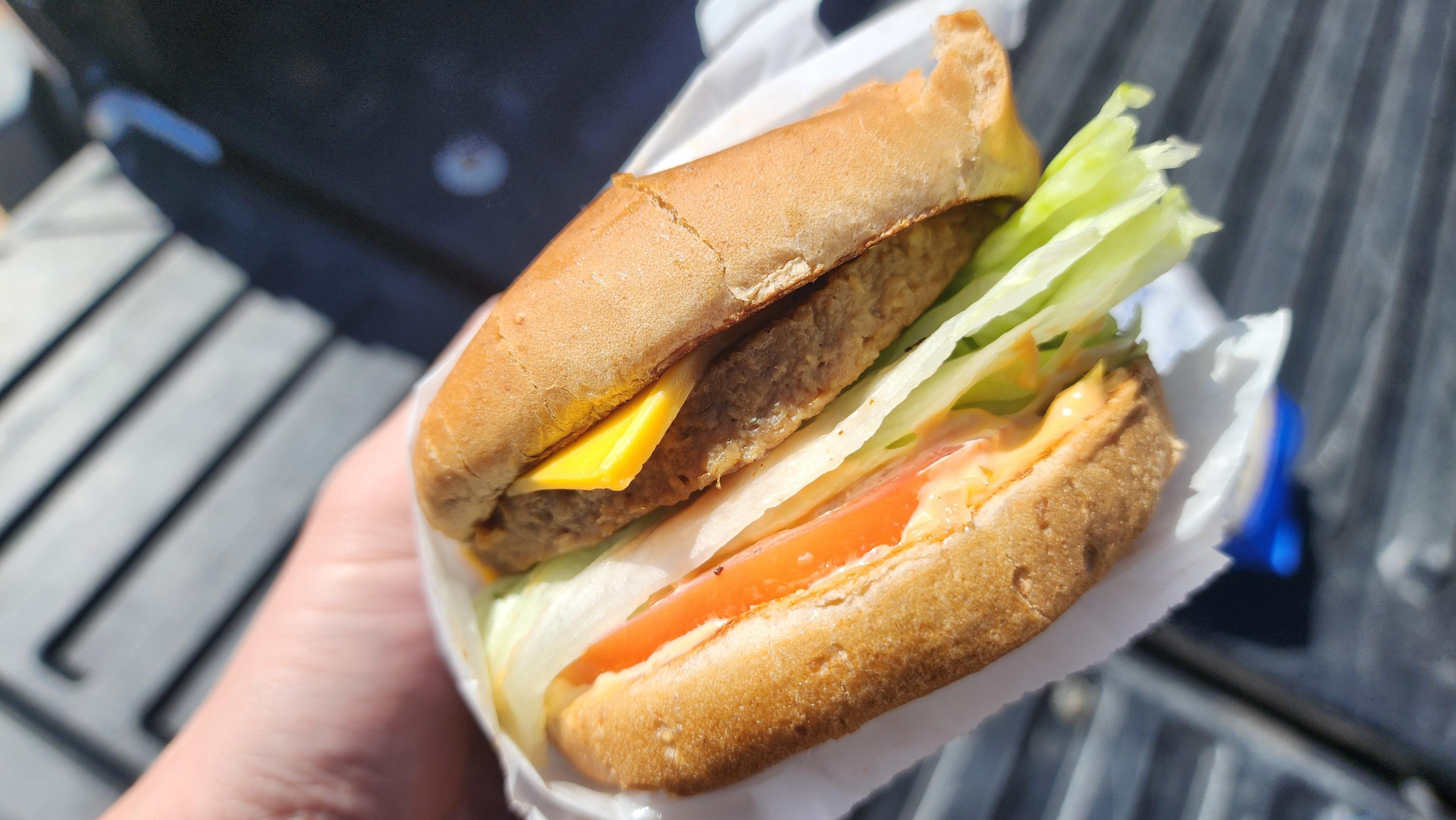The Forgotten Fast Food Giant Of California
Neil Baker helped forge McDonald's and Taco Bell, but nobody knows about Baker's Drive-Thru.
Regional fast food chains are bizarre and beautiful. These local favorites tend to remain local, either because there's no interest in going national or the menu just doesn't have broader appeal; some chains are so oddly specific that they just wouldn't make sense anywhere else. One such restaurant is Baker's Drive-Thru, a string of fast food restaurants based in the Inland Empire region of Southern California, founded by a man whose monumental contributions to fast food have been largely lost to time.
The Inland Empire of Southern California is a metropolitan area that centers around the cities of San Bernardino and Riverside. It's "inland" because it's roughly 60 miles away from Los Angeles county and the Pacific Ocean. You might also know San Bernardino as the birthplace of McDonald's, Taco Bell, and Del Taco. Southern California, and more specifically San Bernardino, is truly the epicenter of fast food. It gets summed up nicely in this Los Angeles Times article written by Valerie J. Nelson in 2008:
"San Bernardino was the hub for so many of these guys, and it all really centered around the McDonald brothers," Chris Nichols, a Los Angeles Conservancy historic preservationist, told The Times in an e-mail. "It's kind of like the early days of computer development, where everybody at the table would go on to be a household name."
"Baker" might not be a household name, but it's one that has rubbed elbows with all of the fast food giants at one time or another.
A brief history of Baker’s Drive-Thru
Neil Baker founded Baker's Burgers (the name before it became Baker's Drive-Thru) in San Bernardino in 1952. He is a critical figure in the early days of fast food, and hilariously a bit of a Forrest Gump when it comes to America's fast food history.
The Times article explains that Baker had a hand in just about every historic fast food operation at the time: He helped Richard and Maurice McDonald build their first McDonald's restaurant. He helped Glen Bell build a hamburger stand in 1948 that would eventually become Taco Bell. John Galardi even worked at Baker's Burgers before founding his own hot dog chain, later known as Wienerschnitzel.
At the outset, Baker served traditional American fare—burgers, fries, sandwiches, and the like. Eventually, though, he realized that the Inland Empire was evolving and that there might be potential profits in Mexican food, so he developed the very first Twin Kitchens concept. This innovative design featured one drive-thru window for American food and another drive-thru window for Mexican. If you wanted a burger and a taco, well, you had to go through the drive-thru twice. Maddening.
Today, though, all the food is served together, and you can still order a Twin Kitchens combo featuring a taco, burger, fries, and a soda starting at $9.99.
But there's a third concept neatly wrapped up into Baker's: a strict vegetarian menu. In 1995, Baker's began adding vegetarian items to just a few locations. It was originally called the "Loma Linda Kitchen Menu" due to the prevalence of vegetarians in Loma Linda. Why so many vegetarians in the city of Loma Linda? Because roughly half the population there are Seventh-Day Adventists, and their interpretation of the Bible in regards to eating animals is a pacific one.
Because of this unique population, Baker's provides plenty of vegetarian items, including tacos with soy protein, bean & cheese burritos, old-school veggie burgers, Mexican salads, and even grilled cheese sandwiches. Today, the vegetarian menu exists at most of Baker's 39 locations. With its budget-friendly and vegetarian-friendly American and Mexican fare, Baker's exists to serve its community. It didn't sell out or go mainstream—and Neil Baker is a legend for it.
Okay, but how’s the food at Baker’s Drive-Thru?
Honestly, this food tastes just fine. It's a blast from the past, and there's some good and bad involved there.
The Boca Burger features a colorless, warmed soy patty reminiscent of the veggie burgers from the '80s and '90s. It lacks the flavor of an ultra-processed, super "meaty" Impossible burger or the fresh, well-constructed vegetable-forward Veggie Shack from Shake Shack. This is a throwback, a MorningStar Farms burger through and through. It gets slapped with some room-temperature American cheese, topped with a special dressing that's Thousand Island–adjacent, and served on a toasted wheat bun. It tastes... antiquated. But still, not horrible. It costs $5.99.

The fries at Baker's, however, are delicious. They're straight-cut, perfectly golden, and crispy-creamy. I think these would even rival McDonald's fries. They're a tad thicker, perfectly cooked and salted. Fresh fryer oil, too. One thing I've noticed about localized fast food chains: Their fries are far better than the restaurants that go national.

The hard shell tacos are delicious, and very much like Taco Bell's tacos. The taco meat is juicy and seasoned well with cumin and spices. The iceberg lettuce is fresh and crunchy, the cheddar cheese thick and creamy. Oh, you can also get a taco burger at Baker's, which features seasoned taco meat in place of a burger patty, though I wouldn't really recommend it.

The all-beef burger is pretty good, if a tad unspectacular. I appreciate the toasted bun, the Thousand Island dressing, and fresh iceberg, but the burger patty itself is just too darn thin. In Southern California, you're always in close proximity to a burger that'll outshine Baker's.
While some of the food is just fine, one can't help but think what might have been if Neil Baker did actually decide to franchise out. He definitely had the opportunity, though it doesn't sound like he ever considered it. Baker himself noted that he had a fear of flying, and besides, he was happy with what he had. Again, from the LA Times article in 2008:
"When you have a successful business and you make more money than you can ever spend, why do you need to get bigger?" Baker said in a 2004 interview. "I'm very happy with the way things have turned out."
Baker was the antithesis of Ray Croc: pleased with his modest yet rewarding accomplishments, content with his wealth, and dedicated to serving his local community. Some businesses, and the people who run them, are meant to stay regional. Though he passed in 2008, Neil Baker's contributions to the modern fast food era live on. You just have to go to San Bernardino if you want to see them for yourself.


